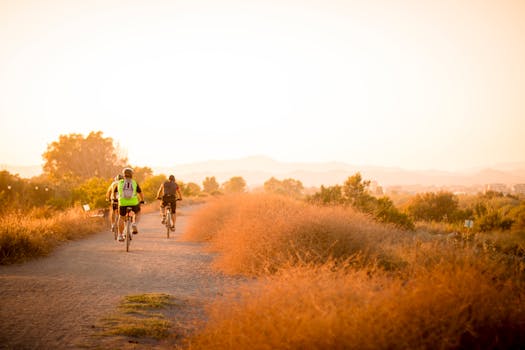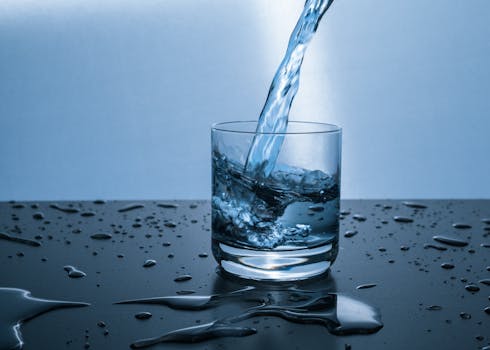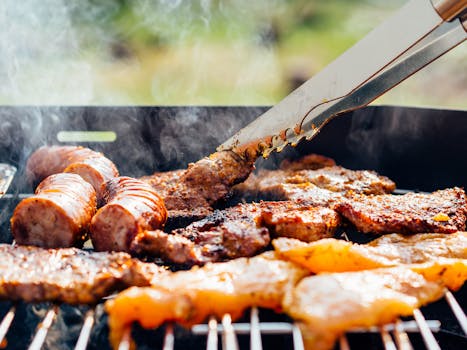
Get out, get fit
Summer can be a good time to do some physical activity and get fit, especially if longer days and vacation time offer extra opportunities for leisure.
Walking in the country, or even the city streets, going to a zoo, exploring a nature reserve, biking along the ocean or taking a rowboat ride are all fun summertime activities.
In places where the summer is very hot, it can be tempting to stay indoors with the air conditioning on. Even then, early morning and late afternoon can be a good time to take a walk.
Physical activity is good for mental health, it can ward off obesity, and it enhances fitness. It is also thought to reduce the risk of breast and other cancers, of psoriasis, it improves cognition in children and older adults, and it leads to better sleep.
Sun protection
Sunlight is good for the body. It is an excellent source of vitamin D, and it can enhance mood. However, like many things, too much can be hazardous.
There are two types of sun rays: UVA and UVB.
UVA rays penetrate deep into the skin’s layers, and they create a tan that appears quickly then fades. They can also cause serious damage. UVA rays penetrate deep into the skin, affecting the connective tissues and blood vessels and leading to a loss of elasticity, wrinkles, and aging.
Spending too long in the sun leads to overexposure of the skin to UVA and UVB rays. Eventually, these can cause life-threatening skin cancers.
The American Cancer Society estimates that over 3.5 million new cases of non-melanoma skin cancer will be diagnosed in the United States in 2016, and over 76,000 cases of melanoma, the most serious kind.
To protect the skin from UVA rays, a broad-spectrum sunscreen that blocks both UVA and UVB rays and that has a protective factor of at least SPF 30 is needed.
For protection from sunburn, it is advisable to use not only sunscreen but also protective clothing, and to stay in the shade.

Stay hydrated: Drink water
In hot weather, it is crucial to drink plenty of water, and to replenish all the fluids that are lost through perspiration.
Drinks that contain alcohol or caffeine are not effective against dehydration. They can increase fluid output, making it harder to be properly hydrated.
Signs of dehydration include:
- Dry mouth
- Headache
- Light-headedness
- Dizziness
- Little or no urination
- Constipation
- Muscle cramps.
Dehydration can lead to a number of conditions.
Heat exhaustion can cause the following symptoms:
- Cool, moist skin with goose bumps when in the heat
- Heavy sweating
- Faintness
- Dizziness, nausea, and headache
- Fatigue
- Weak, rapid pulse and low blood pressure on standing
- Muscle cramps
- Headache.
Heat stroke occurs when body temperature rises dangerously high, above 105.1 degrees Fahrenheit, and it can no longer cool itself. It is a medical emergency, because it can be fatal.
Wearing lightweight clothing, avoiding direct sunlight, using air conditioning, drinking water, and avoiding heavy meals can help to reduce the risk of heat exhaustion and heat stroke.
Severe dehydration can lead to kidney failure, coma, and death.
When exercising, it is a good idea to carry a drinking bottle with water.
Bugs and insects
Insect stings are responsible for more than half a million emergency room visits every year in the U.S., according to The National Pest Management Association (NPMA).
Summer stingers include bees, yellowjackets, wasps, and hornets.
Bites and stings can lead to allergic reactions and infections.
Tips to prevent insect stings include:
- Keeping windows and doors closed
- Throwing out garbage as often as possible
- Wearing closed toe shoes all the time
- Avoid excessive use of fragrance
- Avoid wearing dark colors or floral prints that may attract wasps
- Contacting a licensed pest professional to deal with infestations.
If someone is stung and has a reaction, medical help should be sought immediately.
Removing the stinger and washing the area with soap and water can ease the swelling, itching, and pain.
Applying an ice pack or cold cloth and taking ibuprofen or another over-the-counter pain reliever may help. An antihistamine, such as Benadryl, may help to decease the itching and swelling.
Yellowjackets, wasps, and hornets are attracted to backyard barbecues, sweets, and proteins.
Their sting is no more dangerous than that of other stinging insects, but they tend to sting repeatedly. This can pose a serious threat to both adults and children.
Heat and fire
List of safety tips to reduce the risk of heat- and fire-related accidents during the summer break:
- Keeping barbecues far away from anything that may catch fire. It is important to check the grill for leaks, dents, or cracks, and to light the match before turning on the gas.
- On the fourth of July, stay at least 500 feet away from the fireworks display, and keep children away from used fireworks or sparklers.
- If the car radiator overheats, wait until the engine cools down before removing the cap.
When having fun this summer, stay safe.

